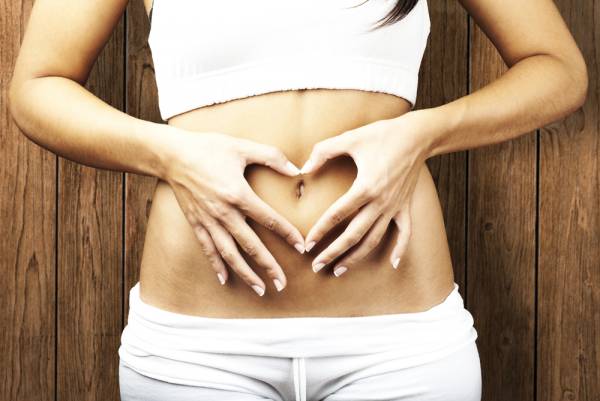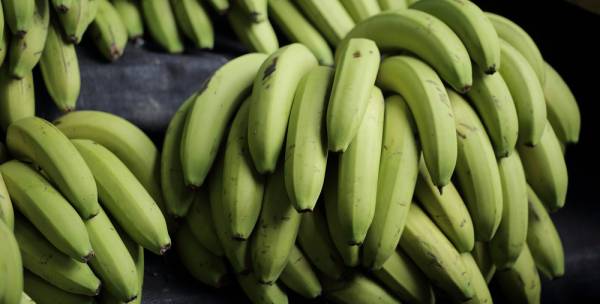We are constantly told to eat less and exercise more. We know we need to do this. We also know we should eat more fruits and vegetables. So why can’t we stay away from certain junk foods?
I am going to say this right away – it is not your fault. It is not your weak willpower that leads to these cravings. For millions of years, it has been advantageous to our survival for us to be lazy and eat foods high in energy. But only recently, in terms of our genome, have so many high-energy foods become readily available.
In this short time, our wiring has not changed. We get a craving for our favorite junk food and we can easily go and get it. We do not even have to expend much energy to do so. We can walk out the front door, jump in our car, and even use the drive-through.
If it is not your lack of willpower causing these actions, then what can it be? There are four types of food cravings you can experience: emotional, physical, nutritional, and those related to gut health.
You might have an inkling about how cravings work with the first three things in that list, but how does gut health impact our food urges and what can it indicate about our overall health? Let’s take a look.
How Our Gut Bacteria Influences What Foods We Eat
We have more bacteria within us than actual human cells. This makes us more bacteria than human. The bacteria within us have evolved with us for millions of years. They make up the majority of our immune system by controlling what can and cannot enter our bloodstream.
“Our gut bacteria can also influence what foods we eat. They do this by sending molecules out that make certain foods taste great and other foods taste not so great.”
Just like any evolving species, these bacteria learned how to use their environment to their advantage. The environment in this case is our body. One way in which our gut bacteria take advantage us is by controlling our moods and behaviors.
Our gut bacteria send signals to many systems within our body. This includes our immune system, endocrine system, and nervous system. This is how our gut health can alter our hormones and how well we recover from illness (or workouts). It’s also how our gut microbiome can be the driving force behind nervous system disorders.

Our gut bacteria can also influence what foods we eat. They do this by sending molecules out that make certain foods taste great and other foods taste not so great. They do this for a couple of reasons:
- They are living organisms and thrive on certain foods. They can alter our tastes and how we feel from eating certain foods to enhance their ability to survive.1
- They also use this tactic to starve their enemies. The bacteria in our bodies are constantly fighting each other to take up more real estate. One way to gain an advantage is to cut off the food supply of your enemies.
“Our taste buds are not changing, but our balance of gut bugs is.”
This explains why some children and even adults do not like the taste of vegetables. The “bad” gut bacteria are influencing their taste buds to better suit their needs. Over time, this can lead to weight gain and other ailments. This also explains how over time “our taste buds change.” Our taste buds are not changing, but our balance of gut bugs is.
Diet Plans and Supplements to Improve Gut Health
Many dietary plans out there now focus on gut health. The GAPS diet and the paleo diet encourage foods that feed our good bacteria, while discouraging the foods that feed our bad gut bacteria. This allows our gut microbiome to regain balance and helps alleviate our food cravings.
Supplements may also be a necessary part to a gut-healing protocol. Taking a quality probiotic should probably be part of everyone’s supplement plan. A probiotic supplement gives us some trace amounts of good gut bacteria. If we take the supplement and then feed these beneficial bugs the nutrients they need through a good diet, they should grow and thrive.
“A supplemental protocol of probiotics and resistant starch can help to make your dietary efforts even more effective.”
Prebiotics are another supplement that can aid gut health. Prebiotics are indigestible fibers that supply our beneficial gut bacteria with the nutrients they need. One useful prebiotic is resistant starch. This comes from eating green bananas, cooked and then cooled potatoes, and green plantains. It can be taken in supplement form from potato starch. You want to take in roughly 30 to 40g of resistant starch per day. This equates to four or five tablespoons of potato starch or one or two green bananas. (Note: you may need to start with a smaller dose and work up to the 30 to 40g range due to the risk of gastrointestinal issues.)

Take Action
If you are suffering from food cravings, you need to do all that you can to regulate your gut microbiome. This is done by avoiding processed foods, as those feed our negative gut bacteria, and instead eating plenty of fruits and vegetables, which feed our good bacteria. A supplemental protocol of probiotics and resistant starch can help to make your dietary efforts even more effective.
Implementing these strategies will enhance more than just weight loss. You will feel more energy and have higher immunity, and your mood can even be increased. So, take care of your gut bugs and they will take care of you.
Found this helpful? You’ll also like:
- 4 Things Other Than Food You Might Be Craving
- The Four Rs: How to Restore Optimal Gut Health
- What Our Dietary Guidelines Should Be
- What’s New on Pulse Beat Fit Today
References:
1. Norris, J. “Do Gut Bacteria Rule Our Minds” University of California San Francisco (2014). Retrieved on April 16, 2015.
Photos courtesy of Shutterstock.






